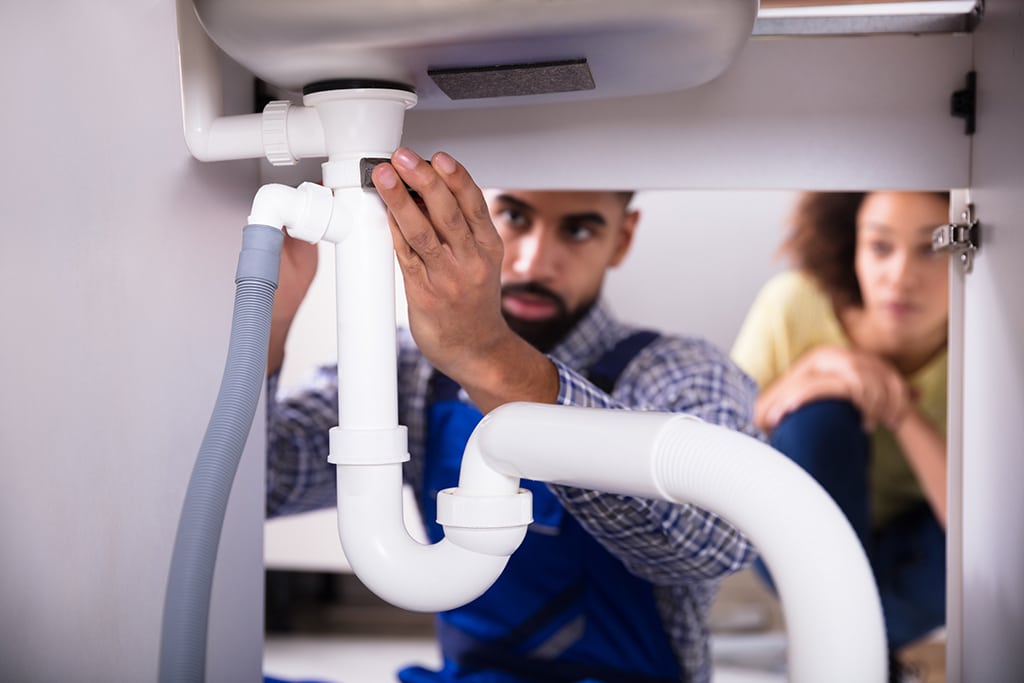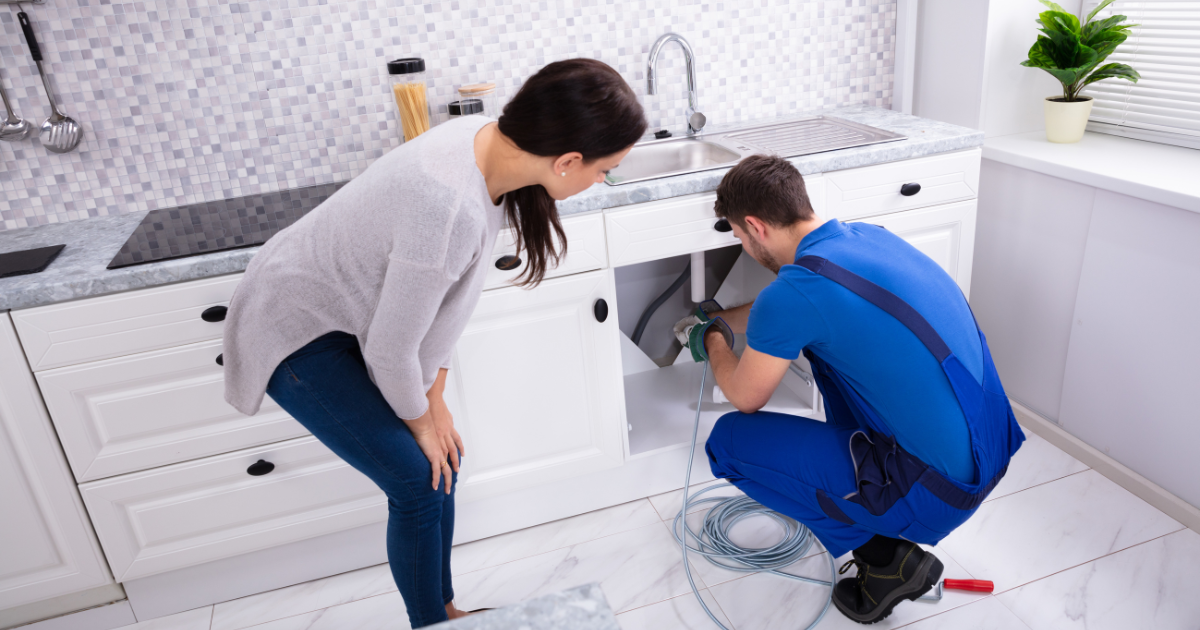The content in the next paragraphs in relation to Tips for Dealing with Clogged Drains and Sewer Lines is amazingly motivating. You should investigate it.

Introduction
Managing a blocked drain can be an aggravating experience, interrupting day-to-day activities and possibly causing damage to your home. Nonetheless, prior to connecting to pipes experts, there are actions you can require to deal with the issue on your own. In this overview, we'll check out DIY solutions and preventive measures to take on an obstructed drain successfully.
Determining the Problem
The initial step in dealing with an obstructed drain is recognizing the indications. Sluggish water drainage, gurgling noises, foul odors emanating from drains pipes, or water support up prevail indications of an obstructed drain. Determining these indicators early can assist stop further complications.
Usual Causes of Obstructed Drainpipes
Understanding the factors that add to drain pipes blockages is important for reliable resolution. Typical culprits consist of hair, soap residue, grease, food particles, and foreign objects like hygienic items or paper towels. Tree origins attacking below ground pipes can likewise cause significant blockages.
DIY Solutions
For small blockages, a number of DIY solutions can be efficient. Putting boiling water down the drain can aid dissolve grease and debris. Sodium bicarbonate and vinegar or a mix of salt and cooking soda can work as all-natural cleaners. Using a plunger or pipes serpent to displace obstructions is another option.
Tools and Tools
Having the right tools on hand can make DIY drainpipe cleaning up extra efficient. A plunger is a flexible tool for removing obstructions in sinks, bathrooms, and showers. A plumbing snake or auger can get to much deeper clogs, while drain cleaning chemicals can be utilized cautiously for stubborn clogs.
Preventive Measures
To prevent future clogs, adopting preventive measures is critical. Install drain guards or filters to catch hair and debris before they go into the pipelines. Routinely flush drains with hot water to dissolve grease accumulation, and prevent getting rid of oil or strong waste away.
When to Call a Specialist
While do it yourself solutions can deal with minor clogs, particular indicators indicate the demand for specialist help. Consistent clogs, foul odors in spite of cleaning up efforts, or numerous drains supporting at the same time are warnings that call for skilled intervention.
Choosing the Right Pipes Service
When choosing a plumbing solution, take into consideration elements such as experience, licensing, and consumer testimonials. Choose a reliable plumbing with a performance history of quality workmanship and transparent rates techniques.
Cost Factors to consider
The cost of specialist drainpipe cleaning company can differ relying on the severity of the obstruction and the plumbing professional's prices. Demand quotes from numerous companies and inquire about any kind of additional charges to guarantee transparency and prevent surprises.
Safety Precautions
When trying DIY drainpipe cleaning, focus on safety and security. Wear protective handwear covers and glasses to prevent contact with harmful chemicals or microorganisms. Never mix various drain cleaning items, as this can create dangerous fumes.
Case Researches
Real-life examples highlight the efficiency of DIY options and the importance of timely expert intervention in fixing drainpipe obstructions.
Conclusion
By following the pointers laid out in this overview, you can successfully deal with blocked drains pipes and stop future pipes concerns. Whether going with DIY services or seeking specialist assistance, prompt activity is essential to preserving a healthy plumbing system and maintaining the integrity of your home.
9 Ways You Can Clear a Blocked Drain
Blocked Drains from Hair
We’ve seen it all before, a build-up of hair that’s leads to a clogged drain. Most times it’s a moderately easy task to simply ‘remove the hair’, but if it’s not cleared up straight away – it can cause a lot of issues down the line.
Hair falling off the body in the shower or while getting ready over the sink and in the bathroom is one of the most common causes of blocked sinks and drains. But whilst it’s a common problem for many homeowners, there are ways you can fix your drain and put a long-term solution in place.
How to Fix Blocked Drains from Hair?
What to do: Small amounts of hair can be removed by pulling it out with gloved hands to avoid it getting worse. Drain cleaning devices such as drain spiders can also be purchased to help remove the hair from the drain. However, it’s important to be careful as some devices and cheap hair removal chemicals can make the problem worse.
It’s important to remove the hair before it gets clogged into the entry of the drain pipes. If you’re unable to reach the hair or the devices aren’t working as intended, it’s time to speak to a blocked drain specialist.
Blocked Drains from Plants and Dirt
Natural debris like trees, shrubs, dirt and leaves can be an issue for water drains, especially after spring and autumn. Your regular garden and drain maintenance that keeps the outdoor area looking great is also essential to the productivity of your water drains and pipes.
Leaves aren’t the only culprit, however – tree roots are notorious for growing underneath in search of water and as a result, will usually head straight to your drains.
How to Fix Blocked Drains from Plants and Dirt?
What to do: To prevent plants, leaves and dirt from blocking the drains, keep the outdoor area clear of fallen leaves and debris. If this mess is left long enough, it will cause your drains to become severely blocked.
Keep your trees well-watered so they are less drawn to the drains as a source of moisture and stay away from clogging plants where possible; like willow trees, oak trees, magnolias, boxwood shrubs, palm trees and gum trees.
While ensuring your yard is free from leaves and dirt is a great way to prevent build-up, sometimes the real issues lay under the surface. Tree roots can crack your drain pipes beneath your home – causing severe blockages and leaks. Specialist drain cleaning equipment can be used to clear the blockage and pipe relining technology can provide a long-term structural repair.
Blocked Drains from Grease Build-up
Like hair in the bathroom, grease and fat will build-up in the kitchen sink over time. These fatty substances are a very common cause of blocked drains and pipes and can be a nuisance to clear out.
Any grease waste or fatty substance that is washed down the sink will stick to the inside of the pipes and eventually build up to a point no liquid can pass through. It’s important to be aware that this grease doesn’t leave the pipes as easily as you would expect.
How to Fix Blocked Drains from Grease Build-up?
What to do: Avoid washing these fatty ingredients down the affected drain as much as possible. Grease that’s washed down the drain will cool and harden in the pipes.
A smart way to prevent this build-up of grease is to start collecting all glass jars that you purchase at the supermarket. Then, instead of pouring this oil or kitchen grease down the drain, put it in the small glass or plastic containers to discard with your garbage.
Blocked Drains from Toiletries
As more people get into the habit of disposing of toiletries down the drain, bigger problems are being caused in our pipes and sewers. Nappies and baby wipes are the two common issue items known to block drains after being flushed down the toilet.
Such items become immersed with water, they absorb the moisture and enlarge, quickly blocking access to water drains and pipes.
How to Fix Blocked Drains from Toiletries?
What to do: This way of disposing of toiletries is dreadful for the environment and everyone should be encouraged to dispose of toiletries the right way. In the home, these items should be taken out with your garbage, just as people should make use of the designated bins when using public changing rooms and toilets.
Blocked Drains from Heavy Rain and Storms
Throughout the wet season, drains will experience floods of water because of heavy rainfall. Because drains aren’t really designed to take the full impact of this weather, water build-up can be common in many Perth households.
When there is an overflow of rainwater in gutters and downpipes, there’s a good chance there’s a blocked drain that needs to be cleared out.
How to Fix Blocked Drains from Heavy Rain and Storms?
What to do: Ensure gutters and outdoor drains are cleaned during the wet season to prevent a build-up of leaves which will cause a bigger blockage. Problems caused by heavy rain and storms will usually require a plumber to help unclog and assist with the wastewater removal. If this is the case, contact them as soon as possible to prevent further build-up and potential flooding in your home and yard.

I'm certainly very intrigued by Some easy tips to fix blocked drains and I'm hoping you enjoyed the entire entry. Make sure you pause to distribute this blog post if you liked it. Kudos for being here. Return soon.
Maintenance Sign-Up